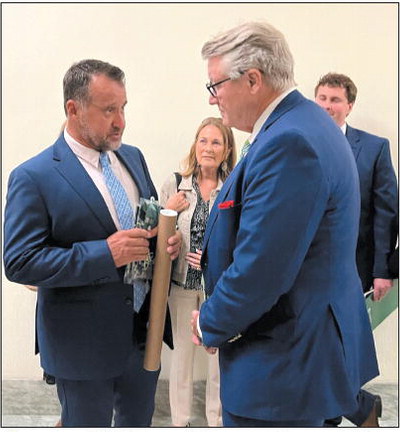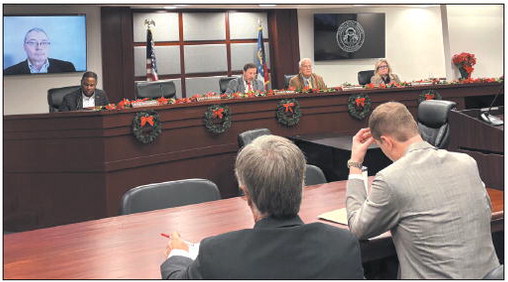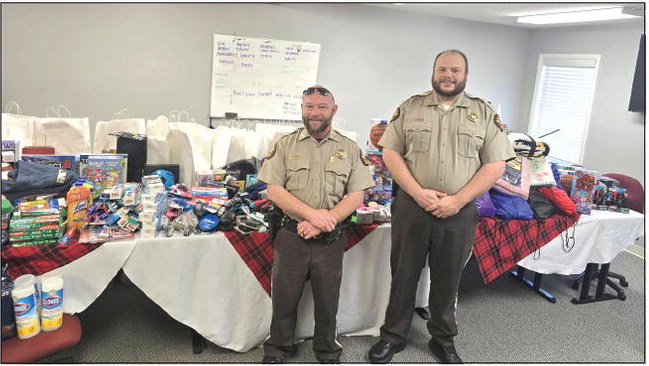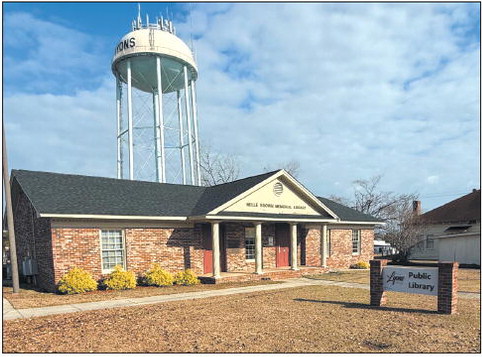EMC Leaders Advocate For Members On Capitol Hill


Approximately 80 electric membership corporation (EMC) leaders from across Georgia, including General Manager George McLendon from Altamaha EMC, recently participated in continued from page
the National Rural Electric Cooperative Association (NRECA) 2025 Legislative Conference in Washington, D.C. April 27-29. A contingent of 2,000 directors, managers and representatives with electric cooperatives across the nation spent time on Capitol Hill educating members of Congress and administration officials on priority issues that could adversely affect EMCs and their ability to provide safe, reliable and affordable electricity and related services.
“Presenting a unified front sends a powerful message to lawmakers,” George McLendon, General Manager at Altamaha EMC, said, “It underscores our commitment to meaningful engagement with elected officials and our responsibility to advocate on behalf of our members by highlighting the key issues affecting electric cooperatives.”
Georgia’s electric cooperatives met with U.S. Senators Jon Ossoff and Raphael Warnock, as well as 14 members of Georgia’s delegation to the U.S. House of Representatives. Altamaha EMC joined others in educating policymakers on the unique benefits of the locally controlled, consumer-owned, cooperative business structure and urged lawmakers to support initiatives in four key areas: Unwind Environ -mental Protection Agency (EPA) regulations to Enhance Grid Reliability: To accommodate Georgia’s rapidly increasing energy demands, EMCs urged legislators to unwind flawed EPA regulations to avoid premature closure of power plants and allow natural gas-fired resources to run as base load units to enhance grid reliability.
Support the Rural Utilities Service (RUS) Electric Loan Program: With Georgia as one of the largest users of RUS loans, electric cooperatives from the state urged Congress to increase, or at least maintain, appropriations for the RUS Electric Loan Program to finance American-made energy infrastructure.
Pass PermiGing Re form to Speed Energy Infrastructure Projects: Electric cooperatives urged Congress to pass judicial and regulatory permitting reforms to make it easier to build essential electric infrastructure. The current federal permitting process imposes unreasonable timelines and drives up costs for essential infrastructure projects.
Support New Grid Reliability Projects: Georgia is the recipient of grants from the Department of Energy’s Energy Improvements in Rural or Remote Areas Program (ERA) and Grid Resilience and Innovation Partnerships Program (GRIP) to build transmission, battery storage and other projects to make the electric grid more reliable. The funding from these two grant programs will lower the cost of energy for the approximately 5 million Georgians served by an electric cooperative.
Altamaha EMC is a consumer-owned cooperative providing electricity and related services to members in Emanuel, Johnson, Laurens, Montgomery, Tattnall, Toombs and Treutlen. The Georgia EMC is the statewide trade association representing the state’s 41 electric cooperatives, Oglethorpe Power Corp., Georgia Transmission Corp. and Georgia System Operations Corp. Collectively, Georgia’s customer-owned co-ops provide electricity and related services to 5 million people, nearly half of Georgia’s population, across 73 percent of the state’s land area.
To learn more, visit www.georgiaemc.com and follow us on Facebook and X.
The National Rural Electric Cooperative Association is the national trade association representing nearly 900 local electric cooperatives. From growing suburbs to remote farming communities, electric coops serve as engines of economic development for 42 million Americans across 56 percent of the nation’s landscape. As local businesses built by the consumers they serve, electric cooperatives have meaningful ties to rural America and invest $15 billion annually in their communities.






